Collaboration helps bring high quality spring wheat varieties to farmers’ fields
By Mike Pumphrey and Alecia Kiszonas
The Pacific Northwest (PNW) grain industry is known for high-quality wheat, and Washington growers have earned that reputation after prioritizing and investing in countless ways over decades. The most discriminating local-to-international markets are consistently supplied by our state’s farmers. The quality of what we produce today is built upon decades of improvement in all parts of the supply chain, and future quality depends on what we do today.
Advancing all facets of high-quality
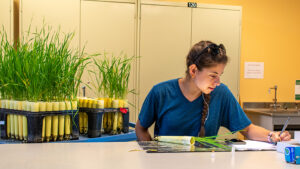
“Quality” may have different meanings at each level of the grain supply, such as seed identity, purity, viability, vigor, and size when planting; quality wheat varieties need to be resilient across a range of environmental and soil stressors, weeds, pests, and diseases in order to meet grain specifications for hardness, test weight, protein, color, soundness, and starch properties; quality commercial production requires timely management, including cultural practices, fertility, and harvest; milling and eventual end-use baking qualities are variable and measured by another couple dozen physical and chemical tests depending on final product purposes; nutritional quality of wheat is another frontier that is now being more directly addressed and will increase in the future.
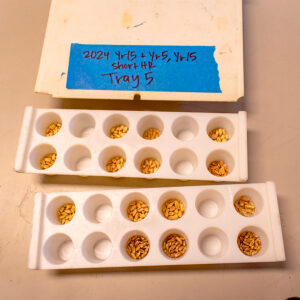
Plant breeding is at the foundation of supplying quality raw materials at each level of the supply chain for production of high-quality food, feed, and fiber products. The newest varieties available from Washington State University’s (WSU) Spring Wheat Breeding program represent the best “quality” available from foundation seed to farm fields, flour mills, and finished products. Varieties expected to be widely multiplied or produced in 2025, in each market class of spring wheat grown in Washington, are built on quality at each level. High quality foundation through certified seed is available from the Washington State Crop Improvement Association and seed dealers, and their broad adaptation and pest and disease resistances make them a solid choice for dryland spring wheat production throughout Washington.
Leading varieties and market benefits
WSU’s newest hard red spring wheats, Hale and Net CL+, are at the top of the list for end-use milling and baking quality in the Idaho, Oregon, and Washington commissions’ 2024 Preferred Variety pamphlets, in addition to leading grain yields and test weight in variety performance trials. The baking properties of these varieties are maintained across a range of years and environments with desired mixing times and strength and high dough mixing stability. This gives millers and bakers flexibility in product formulations and baking processes.
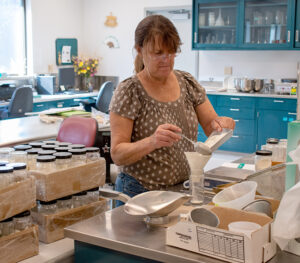
Soft white spring wheat varieties Ryan, Seahawk, Tekoa, and Butch CL+ also have most desirable end-use quality with leading acreages and superior in-field performance. Tekoa is currently the highest ranked soft white spring wheat for end-use quality and was a 2024 National Yield Contest winner produced by Joel Zwainz in Reardan, Wash. Tekoa planted acreage has steadily climbed over the past five years.
Our newest release, Bush, may be ranked even higher for end-use quality than its parent variety, Tekoa, with field trial-topping yield and test weight performance over varieties Ryan and Tekoa across precipitation zones and years. Bush is poised to be the leading spring wheat variety after aggressive seed multiplication in 2024 and 2025, increasing the overall quality of the PNW soft white wheat commodity class due to excellent grain, milling, and baking properties with preferred dough color.
Ryan and Butch CL+ are both partial waxy flour types with bright noodle color, a unique property that has created additional streams for their grain to Udon noodle markets. Ryan has led PNW soft white spring acres for multiple years. Butch CL+ is now commercially available as WSU’s first two-gene Clearfield soft white spring wheat variety to help with soil-carryover in Beyond herbicide rotations. Like its parents, which include Ryan and Seahawk, Butch CL+ has excellent stripe rust resistance, Hessian fly resistance, and aluminum tolerance in an early-maturing, medium-height variety with high test weight and broad adaptation.
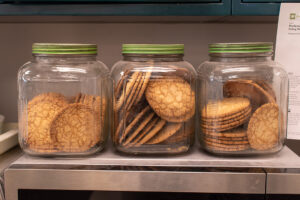
Spring club wheat varieties offer an alternative to growers of soft white spring wheat and a potential market premium. Our newest release, Roger, is the first Hessian fly-resistant spring club wheat and improves options to go along with available varieties Melba and Hedge CL+. Roger is earlier maturing and has lower protein than other club varieties, with very good-to-excellent test weight and broad yield adaptation. Roger is among the highest yielding soft spring wheat varieties and also the highest ranked club type for end-use quality.
The combination of farm-to-table traits in these varieties is the result of collaboration between WSU’s spring wheat breeding and the U.S. Department of Agriculture’s Western Wheat Quality Lab. We partner in selection and evaluation of all wheat varieties over years of their development through testing in WSU’s Wheat Variety Testing Program trials and in our neighbor states. Each of the varieties we have released over the past decade has “Most Desirable” quality, leading in-field performance, and has enhanced our reputation as a local-to-international source of high-quality grains.
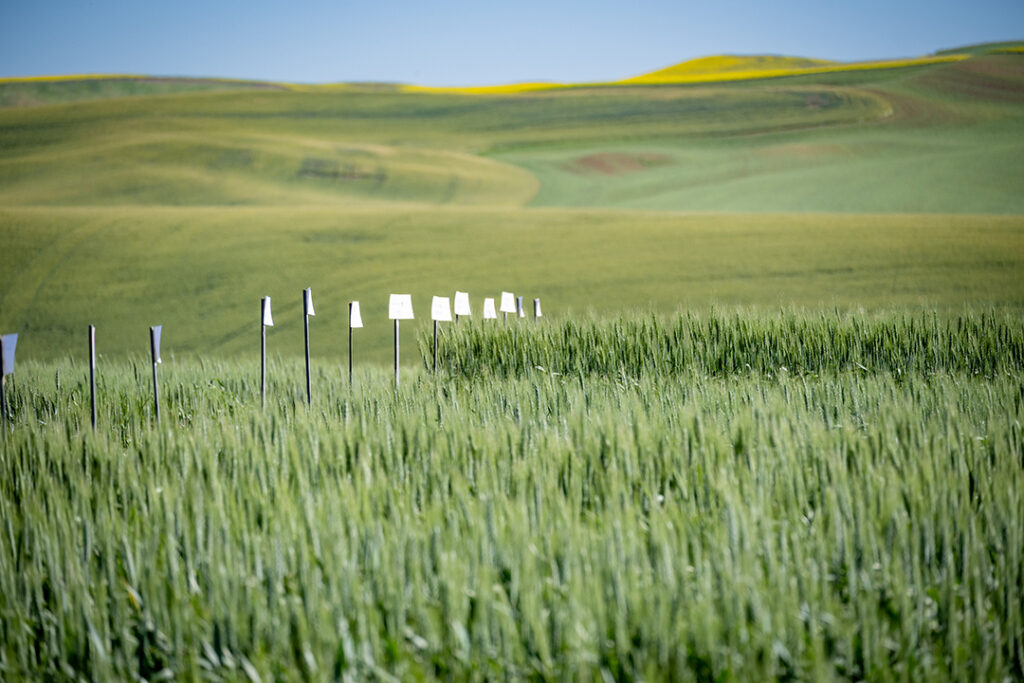
This article originally appeared in the December 2024 issue of Wheat Life Magazine.
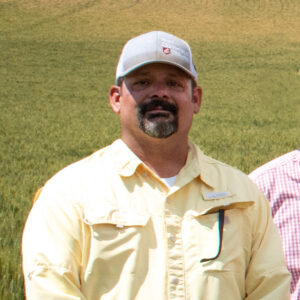
Mike Pumphrey, Ph.D.
Mike Pumphrey is a professor and spring wheat breeder for the Washington State University Department of Crop and Soil Sciences. Read more about Dr. Pumphrey.

Alecia Kiszonas, Ph.D.
Alecia Kiazonas is a research biologist for the U.S. Department of Agriculture-Agricultural Research Service Western Wheat Quality Lab in Pullman.
